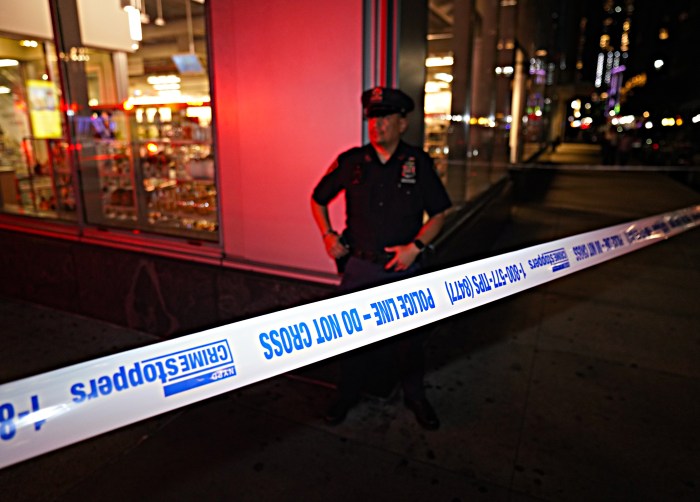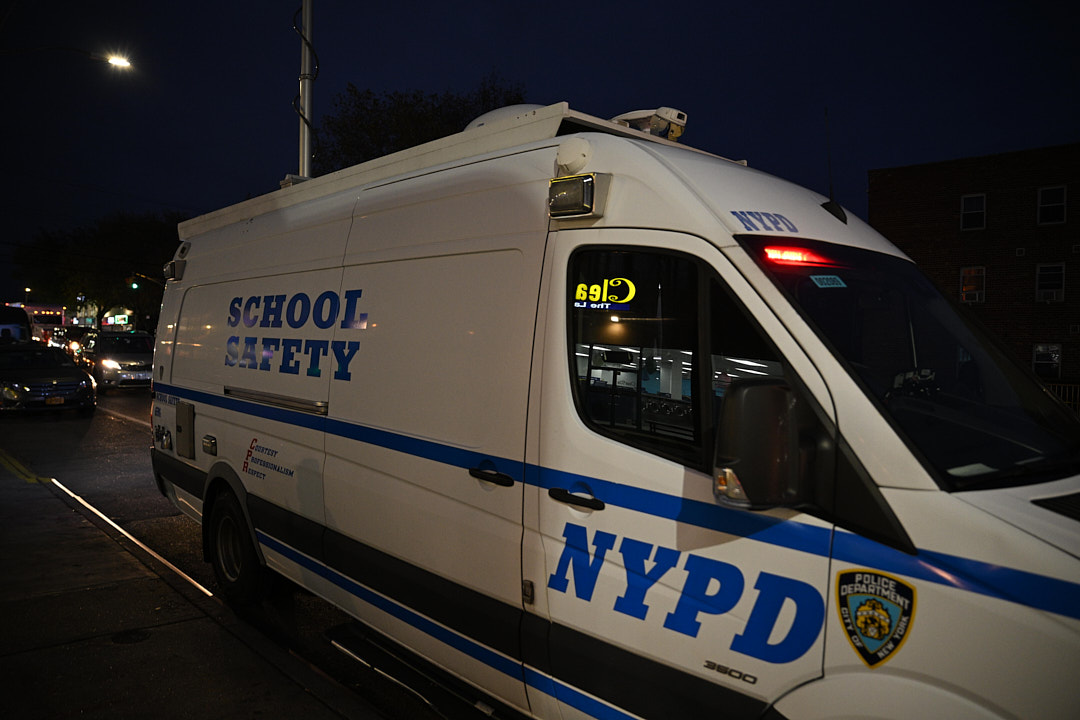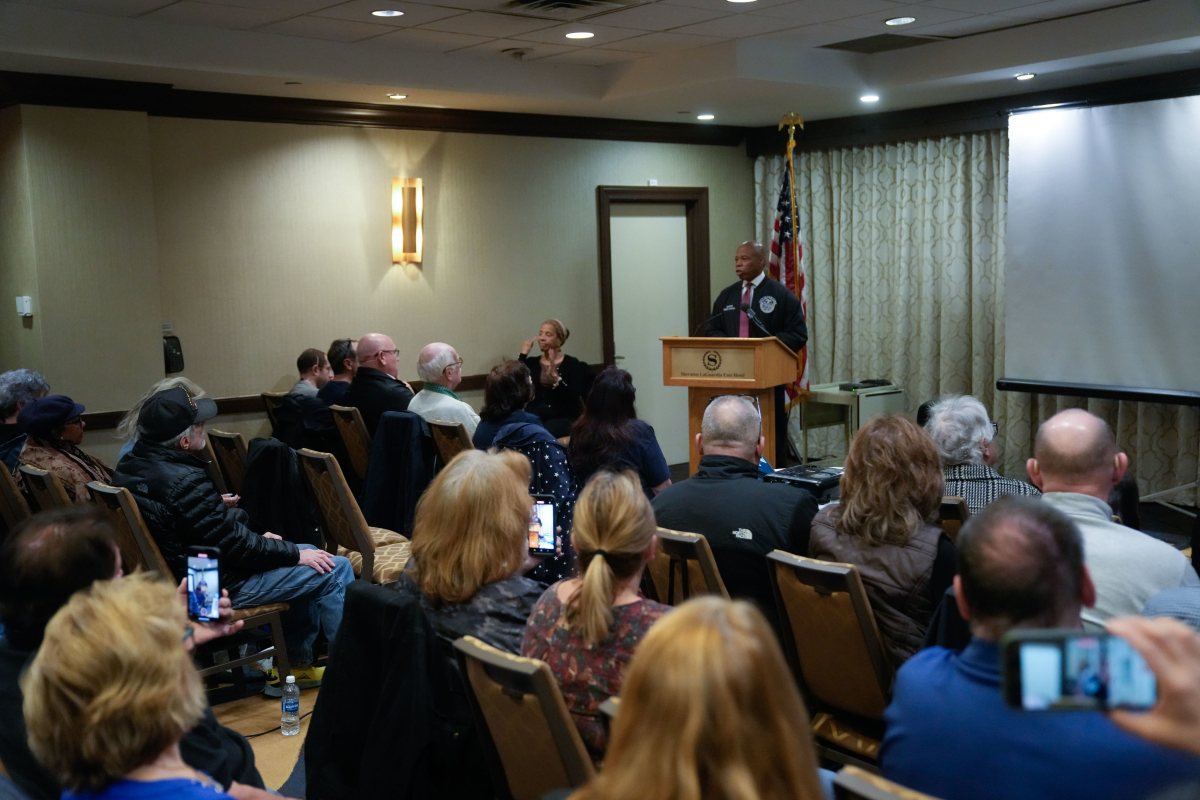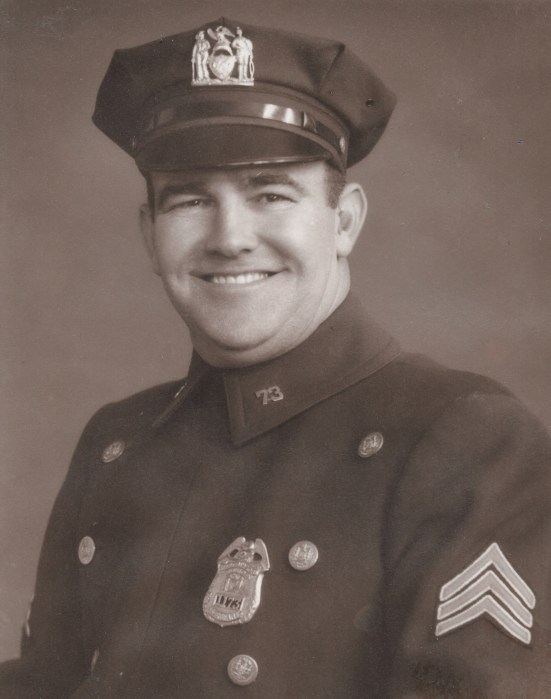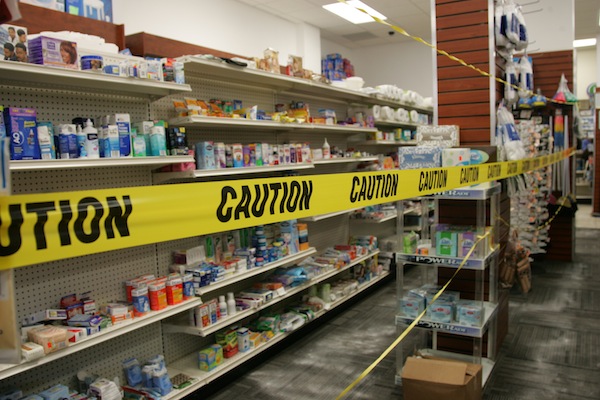
BY SAM SPOKONY | Small businesses are slowly coming back to life along Avenue C, nearly two weeks after Hurricane Sandy brought unprecedented levels of flooding to the busy street.
As the recovery process continues, it’s clear that while virtually every store owner prepared in some way for the storm, which struck on Oct. 29, most were shocked by the extent of the impact. Even though only the upper third of Avenue C lies within Zone A – the area the city placed under mandatory evacuation, because of its susceptibility to flooding – stores on almost every block of the street suffered.
And while the flooding swept evenly throughout the area between around E. Fifth and E. 14th¬†Sts., the restoration of electrical power along Avenue C has been less uniform. Power returned at different times for different buildings, but a few buildings still didn’t have power back.
Over all, most merchants were reopening their doors, or least preparing to.
The Barnyard Cheese Shop, on Avenue C between E. Ninth and 10th Sts., reopened on Tuesday after its building had gotten power back the previous day.
“But we’re still getting our feet back on the ground,” said Alex Lake, a manager at the four-year-old shop, which sells artisanal cheeses, meats and sandwiches. “At this point it’s about reordering the things we lost, and reorganizing everything else.”
Lake explained that the shop’s basement had been flooded up to its ceiling, ruining a refrigerator and its entire supply of frozen meats, a compressor used for cheese processing, and paper goods, such as napkins and plates. But he added that virtually everything upstairs, within the actual storefront, made it through undamaged – and he and other employees are optimistic about a relatively quick recovery.
Around lunchtime on Tuesday, it was clear that the Barnyard Cheese Shop was back on the map, as hungry local residents and other regular customers filed in and out.
“Everybody’s happy to see that we’re still here,” Lake said with a smile. “The neighborhood is being incredibly supportive.”
The recovery process will be much more difficult for the Alphabet City (ABC) Beer Co., on Avenue C between E. Sixth and Seventh Sts. Although that portion of the street lies within Zone B – an area that the city believed only faced a potential flooding risk from a Category 2 or higher hurricane (Sandy was only a Category 1 before being downgraded to a superstorm), the business faced massive damage.
“We lost almost everything we had,” said Zach Mack, a co-owner of the establishment, which sells hundreds of craft beers, as well as craft meats and cheeses. “I never expected this kind of damage—it was surreal.”
ABC Beer Co. also had severe basement flooding during the storm, and lost most of its craft beer inventory, its entire beer tap system, an ice machine, a walk-in refrigerator, all paper and plastic supplies, and all of its meats and cheeses. After recounting all of the losses, Mack sighed and added, “It’s been a long week.”
The business has been open since it regained power last Saturday night, Mack explained, just to retain some semblance of cash flow. But it’s currently offering a very limited selection – only the bottled beers that are stored in refrigerators upstairs, within the store’s main area.
Another major obstacle is that ABC Beer Co. opened very recently, in May, so it’s not as firmly entrenched as many other longstanding businesses in the area.
“We were doing so well in the months before the storm hit,” Mack said, “but we’re just not very well established yet in terms of finances. We just paid for this equipment months ago, and now it’s gone.”
To offset the business’s losses, Mack said, he would be applying for emergency small business loans that are being offered by the city, state and federal government. By Tuesday, he had already prepared applications for loans through the Federal Emergency Management Agency (FEMA), as well as the U.S. Small Business Administration, which allows any size business to borrow up to $2 million to¬†repair or replace damaged equipment, inventory and other assets.
In addition, Mack said he is looking into applying for a loan through the program run jointly by the city’s Department of Small Business Services and the city’s Economic Development Corporation, which offers loans up to $25,000.
But while the current outlook is somewhat grim, Mack echoed sentiments from the Barnyard Cheese Shop, stressing that he has gained great strength from helpful and engaged members of the East Village community.
“The people here have been great,” he said, “and so many members of the neighborhood have been very active in stopping by, setting up some donations for us, and just trying to help us get back on our feet.”
Mack added that, even though it will be difficult, he hopes those collaborative efforts will allow ABC Beer Co. to celebrate its six-month anniversary on Nov. 14 with a grand reopening.
“It’s a stretch,” he said, “but we’ll try.”
Even as many area businesses face similar recovery issues, it’s apparent that not all storeowners think cash loans are the best way to help them re-establish financial security.
Prakash Deshpande, who has run the Avenue C Pharmacy, at E. 11th¬†St., for 32 years, explained that he simply can’t afford to take on tens of thousands in loans at this point. His business already paid back around $500,000 in loans recently, after an expansion of its space. The pharmacy also functions as a large convenience store, selling a variety of everyday products.
“The fact is that we just don’t need cash as much as we need the replacement inventory,” Deshpande said, adding that, along with 9 feet of basement flooding, the hurricane caused more than 2 feet of flooding in the store itself, ruining thousands of items on the shelves.
He suggested that FEMA should institute a program to provide emergency grants specifically for small businesses that receive their merchandise through wholesalers.
“What would really help would be if we could give FEMA our account information, and our wholesaler could just bill FEMA for the replacement inventory we need,” Deshpande said. “That’s the kind of help we need, and I know that would get us back into business.”
Avenue C Pharmacy has been open since Monday, the same day its power was restored, but storm damage is still alarmingly evident throughout the store. Yellow “caution” tape currently blocks off several whole aisles, which contain racks of products soaked by flooding but yet to be removed and thrown away.
The smell from the dirty water that coursed up from the basement also still lingers, and Deshpande pointed out the deodorizing powder that he and has staff had rubbed into the store’s rugs to try to freshen the air. A few customers were buying items on Tuesday afternoon, but, perhaps due to the remaining eyesores, there didn’t seem to be much business being done.
While it was unclear if any shopkeepers still lacked power by the midweek, some residential buildings along Avenue C were still in darkness.
As this reporter walked down the street on Tuesday, a resident of 116 Avenue C, between E. Seventh and Eighth Sts., was speaking with Con Edison workers who had just arrived in a truck outside his building.
The resident, who has lived there for more than 20 years and identified himself only as Robert, said his building was still without power. He said the Con Ed workers told him that power was never restored because his building’s electric meter and other equipment were located in the basement – thus being submerged in floodwater – and will all have to be replaced.
But the Con Ed workers said the utility company was allowing them to bypass the ruined meter in order to restore power to the building more quickly, before the replacement actually happens. They also explained that the replacement could take a while because it needs to be done by an independent company, rather than Con Ed itself.
“It’s a pain in the ass,” Robert said, “but at least Con Ed is making the adjustment to bypass the meters, so it won’t take as long as it would’ve if we had to wait for the replacement.”
One of the Con Ed workers also said that the majority of the remaining power outages in Manhattan at this point could be attributed to basement meters that were destroyed by flooding. Only 400 people in Manhattan were still without power as of Wednesday, according to a Con Ed release.
And speaking of power loss and subsequent resilience, there was at least one Avenue C small business that rose to the challenge of supplying neighborhood residents with alternative light sources throughout the blackout crisis.
Santos Variety Shop, between E. Fifth and Sixth Sts., actually stayed open every day after the storm struck – even though it didn’t have power – in order to sell much-needed candles to residents who hadn’t prepared for the power outage beforehand.
Laurie Diaz, an employee of the store, which has been in business since 1990, explained that so many large candles were sold immediately after the storm that there were barely any left by the following week. But even though the conditions were difficult for the tiny shop, she said the added work was worth it.
“At least we were able to give light to others,” she said.



